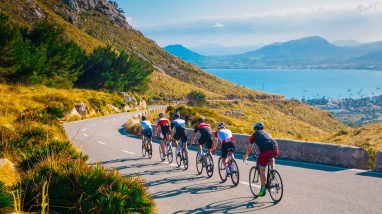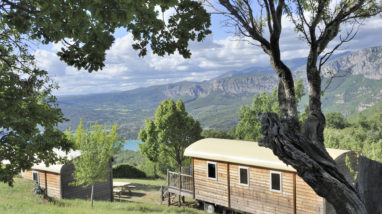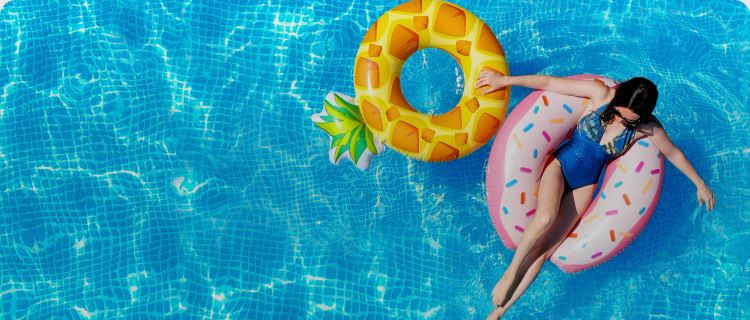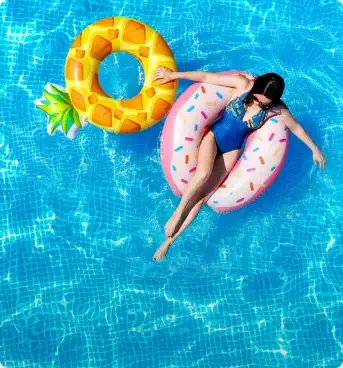Are you looking for the best tips for camping in Ireland? Keep reading this article for your dose of inspiration.
Packing up the tent, bucket and spades, with the excited kids for that savoured camping trip. Hopping into the trusty camper van for a few blissful days in the Great Outdoors. Joining your mates for a weekend of surfing and sleeping under the stars. There’s nothing quite like the sense of freedom and getting back to nature that camping holidays bring, and campsites in Ireland are the perfect place to escape. It’s all about enjoying the lush green countryside, wide open spaces, and beautiful scenery. And whether you’re a seasoned family camper, or a first time campervanner, there’s a brilliant variety of things to see, and places to stay. Picture yourself sea kayaking in Kerry, horse riding on the beach in Donegal, trekking through the majestic Connemara hills, or simply cycling the country roads in the sunny South East. Wherever you decide to go, whatever you decide to do – you’ll find a beautiful base for your adventure here on Campsited.com.
Camping in Ireland: The Essentials
You can expect friendly people, stunning scenery, delicious local cuisine, and creamy Guinness in this land of ‘a thousand welcomes’. But if you plan to go camping in Ireland, there are a few other basics that you might find useful:
Size of Ireland
Ireland is 486 km at its longest point and 275 km wide, with 3,172 kilometres of coastline. You can drive East to West in roughly 3.5 hours, while a trip from North to South takes between 7.5 and 8.5 hours. The Republic of Ireland (our focus for this guide) is made up of 26 counties, while 6 counties in the North make up Northern Ireland.
Driving in Ireland
Driving is on the left side of the road, and passing is on the right. Like most countries, passports and driver’s licence are needed, and all passengers must wear their seatbelt by law. Find out more about this and child seat laws here. Also, using a mobile phone while driving is prohibited.
Currency in Ireland
The Euro (€) is the currency of the Republic of Ireland.
Weather in Ireland
Ireland has temperate climate, so while the weather can be changeable, it’s rarely too hot, or too cold. Summer temperatures range from 60ºF/15ºC to 70ºF/20ºC, while spring and autumn are generally 50ºF/10ºC. The average annual rainfall is 750 mm (30 inches). Find out more about the weather in Ireland here, or check out Accuweather.
The Irish Landscape
Considering its size, there’s a surprising variety of landscapes to enjoy in Ireland. The South West, particularly around Kerry and Cork is lush and verdant, thanks to the warmer temperature that the gulf stream brings. The West, particularly around Connemara, with gentle hills and mystical Burren has its own poetic beauty. Then there’s the peace and tranquility of Ireland’s waterways with many lakes, canals and winding rivers. And of course, you can expect lots of glorious coastlines and beaches around the island.
Language in Ireland
The vast majority of Irish people speak English, but Irish (Gaelic) is the official language of the Republic. That’s why you’ll see road signs and other public signage in both languages. On the train or bus, stops will be announced in Irish and English, too.
Getting there
If you’re coming to Ireland with a car full of gear, or a motorhome, there are several ferry routes from Wales, Scotland and France to choose from.
The main routes include Holyhead-Dublin, Pembroke-Dublin, Cherbourg-Rosslare, Roscoff-Rosslare. Check out Irish Ferries, and Stena Line for more information.
If you’re traveling by air, you can fly into one of the major airports like Dublin or Cork, or one of the many regional airports such as Knock, Shannon or Kerry.
Find the cheapest flights to Ireland on Skyscanner, Momondo, or Google Flights: search by destination and the dates you’re traveling, to score a deal and get your camping trip to Ireland started.
Getting around
Ireland’s motorways are easy to negotiate and well connected, and you can hit some really scenic routes off the beaten track.
The main motorways are the M1 from Dublin to Belfast, the M6 from Dublin to Galway, and the M8 to Cork. All of the main routes are accessible from the M50, the ring road that circles Dublin. You will need to pay tolls to travel on all motorways and you can find details on the charges here.
An excellent rail service, with improving free WiFi, connects the major towns and cities, but prices can be a little high at peak times. If you plan ahead and book well in advance on Irish Rail you may pick up your tickets for less.
Bus services can be cheaper, and coaches are really comfortable. Information on the state-owned services are on Bus Eireann. Private operators such as CityLink and AirCoach also offer great services.
Credit cards and banking in Ireland
Major credit and debit cards like Visa and MasterCard are widely accepted in Ireland, along with American Express credit cards. Not all of the campsites however take cards so be sure to check this before you arrive. Banks are usually open from 10.00am to 4.30pm Monday through Friday, and some banks are open on Saturday. You’ll find ATM (cash) machines at most banks, on streets and in shopping centres.
Shops and supermarkets in Ireland
Most grocery stores and supermarkets open from 9am to 6pm, many staying open later, along with the bigger chains like Tesco, Lidl, Aldi, and SuperValue. Most stores also open on Sunday and on Bank Holidays.
Tipping in Ireland
Some hotels and restaurants include a service charge, but otherwise a tip of roughly 10% is considered normal for good service. In the case of taxis, and excursions a small tip is common, and always appreciated by drivers and guides.
Local law enforcement
In the Republic of Ireland, the law enforcement body is An Garda Siochana.
Emergencies
In case of emergency, dial 999 on any telephone for police, fire or ambulance. Emergency departments (called Accident and Emergency) in most major hospitals are open 24 hours.
Healthcare
The European Health Insurance Card allows European citizens to access state-provided healthcare in all European countries at a reduced cost or sometimes free of charge.
The Irish National Health Plan does not cover U.S. or Canadian visitors, so you should consult with your insurance agent before you travel.
Mobile phone use
If you want to use a mobile phone in Ireland, you’ll need the ability to roam, which most providers offer at this stage.
Alternatively you can buy a reasonably priced pay as you go mobile phone or SIM card from one of the many providers, like Three, Vodafone, Tesco Mobile. Pre-paid phone cards are also widely available. When calling the Republic of Ireland use the prefix 00353. Find out more about country codes here.
Camping Culture in Ireland
There are many great campsites in Ireland to choose from and a well established camping culture. Season dates are usually between April and August, and a few sites open all year round. The majority of Irish parks on Campsited are family run, and all are quality assessed and star rated (1 to 5) annually by Fáilte Ireland, the National Tourism Development Authority. Because of this you can expect well maintained parks, with upkeep standards to comply with for pitches, roads and pathways, toilets and showers, wash up facilities, general park operation and more. You can see a complete overview of Fáilte Ireland’s star rating classifications here.
Ireland welcomes many million visitors from overseas every year, for good reason. And many choose to enjoy camping from an array of beautiful campsite locations in the Emerald Isle. Now you’ve got the essential information you need to take a camping holiday in Ireland, all you need to do is book your magical escape with Campsited.com. Then get ready to chill out, unwind and savour all the goodness of the Great Irish Outdoors.
Like the Republic, Northern Ireland is also a wonderful destination for all kinds of campers and tourers. So much so we’re planning to publish a guide to camping in Northern Ireland very soon.
If there is any additional information you would find helpful in this or any of our future essentials guides be sure to drop us a line and let us know. We’d love to hear from you.
[Copyright Cover Image: Nagles Camping and Caravan Park]









